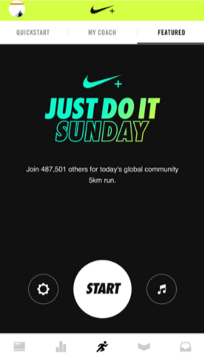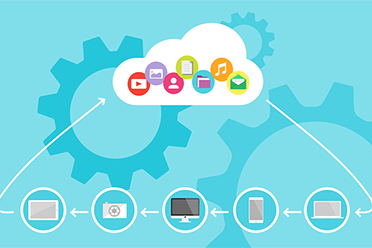Persuasive Health Technology
Software Column
by Allen McLean, RN, MN, MSc, PhD(c)
Allen is currently a PhD student in Health Sciences at the University of Saskatchewan (Saskatoon) in the Computational Epidemiology and Public Health Informatics Lab. His research interests include the development of computer modeling and simulation software for addressing health systems challenges, chronic diseases and health inequities at the population level, as well as mobile technologies applied in long-term care facilities. Allen previously attended the University of Victoria earning an MN and MSc (Health Information Science) in a unique dual degree program for Nursing Informatics professionals. Allen has over 20 years’ experience in healthcare as an ultrasound technologist, clinical educator, team leader and community health RN.
COLUMN

Understanding why some people are healthy and others not, is a complex challenge that requires an understanding of the numerous intertwined determinants that influence our individual health status, collectively known as the Determinants of Health. Depending on the source, there are many nuanced inclusions and exclusions defining the determinants of health, but a widely cited and straightforward framework comes from the World Health Organization (2018) and includes the social and economic environment, the physical environment, and a person’s individual characteristics and behaviours.
Health behaviours include decisions commonly made concerning diet, exercise, unprotected sex, medication adherence, the use of tobacco, alcohol, or street drugs, and self-care, among others. Alongside pharmacologic treatments, and clinical and surgical interventions, behavioural health interventions are expected to remain important care strategies into the future. Individual health behaviours are important determinants influencing both a person’s current health state, and their personal health trajectory. This is especially true among those experiencing chronic health problems.
Nursing informatics professionals can make an important contribution toward improving peoples’ health behaviours, and their health outcomes. Persuasive technology is technology (e.g., computers, mobile phones and applications, websites, wireless technologies, games) purposefully designed to change attitudes or behaviours (Greenwald, 2015). Persuasive health technologies(e.g., eHealth programs, mHealth apps) are a specialized branch that focus on influencing health behaviours; most often used for health promotion and prevention, or disease management. The study of persuasive health technologies includes the design, research, ethics, and analysis of these interactive computing products (Fogg, 2019), and the use of persuasive health technologies is growing rapidly in many areas of health and wellness (van Gemert-Pijnen, Kelders, Beerlage-de Jong, & Oinas-Kukkonen, 2018).

Experts in the field of behavioural science agree that influencing behaviour change is notoriously difficult. The current best-practice recommendations for influencing healthy behaviours often involves one-to-one counselling interventions. However, these approaches present healthcare providers and healthcare systems with significant challenges. One-to-one counselling interventions are resource intensive, both in terms of additional one-to-one time with specially trained care providers, and the associated additional costs. Persuasive health technologies may provide an effective and cost-efficient alternative to one-to-one counselling, and nursing informatics professionals are ideally situated to make important contributions in this field. Persuasive health technologies typically use theories of motivation, persuasion, and behaviour change for influencing, reinforcing, changing, or shaping health-related attitudes and behaviours (University of Twente, 2018). Research exploring the benefits of using persuasive health technologies among people living with chronic illness has shown promise, however, research investigating the use and effectiveness of persuasive health technologies is in its infancy.
Nurses with an interest in mHealth technologies, health psychology, theories of behaviour change, system sustainability, and a strong belief in the value of improved self-care – will find the further study of persuasive health technologies inspiring.
References
Fogg, B. J. (2019). Stanford Persuasive Tech Lab. Captology. Retrieved from https://captology.stanford.edu/
Greenwald, T. (2015, March 23). Compulsive behavior sells.MIT Technology Review. Retrieved from https://www.technologyreview.com/s/535906/compulsive-behavior-sells/?set=535816
University of Twente. (2018). eHealth: Combining psychology, technology and health. Retrieved from https://www.futurelearn.com/courses/ehealth
van Gemert-Pijnen, L., Kelders, S., Beerlage-de Jong, N., & Oinas-Kukkonen, H. (2018). Persuasive health technology. In L. van Gemert-Pijnen, S. Kelders, H. Kip, & R. Sanderman (Eds.), eHealth Research Theory and Development: A Multidisciplinary Approach(228-246). New York, NY: Routledge.
World Health Organization. (2018). The determinants of health. Retrieved from http://www.who.int/hia/evidence/doh/en/






